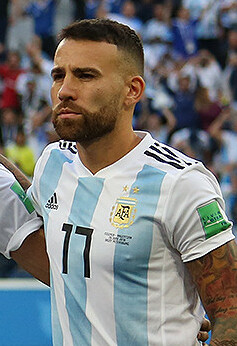As the 2026 FIFA World Cup approaches, teams are not only focused on tactics, squad depth, and injury management—but also on disciplinary suspensions. Some key players are set to miss their nation’s opening matches due to red card offenses picked up in World Cup qualifying matches or continental competitions. These suspensions could shape the early group-stage dynamics and influence match outcomes.
This guide explains how suspension rules work, which players are currently suspended, and what it means for their national teams heading into the 2026 World Cup.
How Suspension Rules Work for the World Cup
Red Card Suspensions
- Straight red cards lead to a minimum one-match suspension.
- Violent conduct, aggressive behavior, or serious offenses may lead to extended suspensions.
- Importantly, pending red-card suspensions from qualifiers do carry over into the World Cup finals.
Yellow Card Suspensions
- Yellow cards can lead to suspensions during qualification phases.
- However, yellow-card accumulation suspensions do not carry into the World Cup finals.
- All yellow card counts are wiped before the tournament begins.
Special Rule for Host Nations
Canada, the USA, and Mexico—being automatic qualifiers—are allowed to serve certain suspensions, including some red cards, in official friendly matches before the World Cup. This rule prevents hosts from entering the tournament at a sporting disadvantage.
Confirmed Players Suspended for Opening Matches of the 2026 FIFA World Cup
Nicolás Otamendi – Argentina
The experienced defender received a red card during Argentina’s CONMEBOL qualifying match. He will miss at least the first World Cup group-stage match.
Moisés Caicedo – Ecuador
The Ecuadorian midfielder was shown a red card during qualifying and will serve his suspension during the early stages of the 2026 World Cup.
Tarek Salman – Qatar
Qatar’s defensive midfielder was sent off during Asian qualifying. His suspension will carry into the group stage of the tournament.
What These Suspensions Mean for Teams
| Team | Player Suspended | Role | Potential Impact |
|---|---|---|---|
| Argentina | Nicolás Otamendi | Defender | Loss of leadership and defensive stability |
| Ecuador | Moisés Caicedo | Midfielder | Reduced control in midfield and tactical disruption |
| Qatar | Tarek Salman | Defensive Midfielder | Weakened defensive midfield protection |
Why These Suspensions Matter
- Tactical Adjustments: Teams must reorganize formations and select backups for crucial matches.
- Early Tournament Pressure: Missing key players in the opener could affect group standings and knockout eligibility.
- Psychological Impact: Suspensions can hinder team morale and preparation.
- Betting and Match Predictions: Analysts and bettors should account for missing players when evaluating matchups.
Key Takeaways
- Red-card suspensions from qualifiers carry into the World Cup.
- Yellow-card suspensions do not carry over.
- Host nations may serve bans in friendlies, reducing suspension risk.
- Players currently suspended include Nicolás Otamendi, Moisés Caicedo, and Tarek Salman.
- Missing even one key player in the group stage can significantly impact a team’s tournament start.
Conclusion
Suspensions may not dominate headlines, but they can shape the outcome of early matches at the 2026 FIFA World Cup. Knowing which players will miss games helps fans, analysts, and bettors better understand team strengths, tactical changes, and potential vulnerabilities. As the tournament draws closer, more updates may emerge based on upcoming friendlies and disciplinary rulings.


